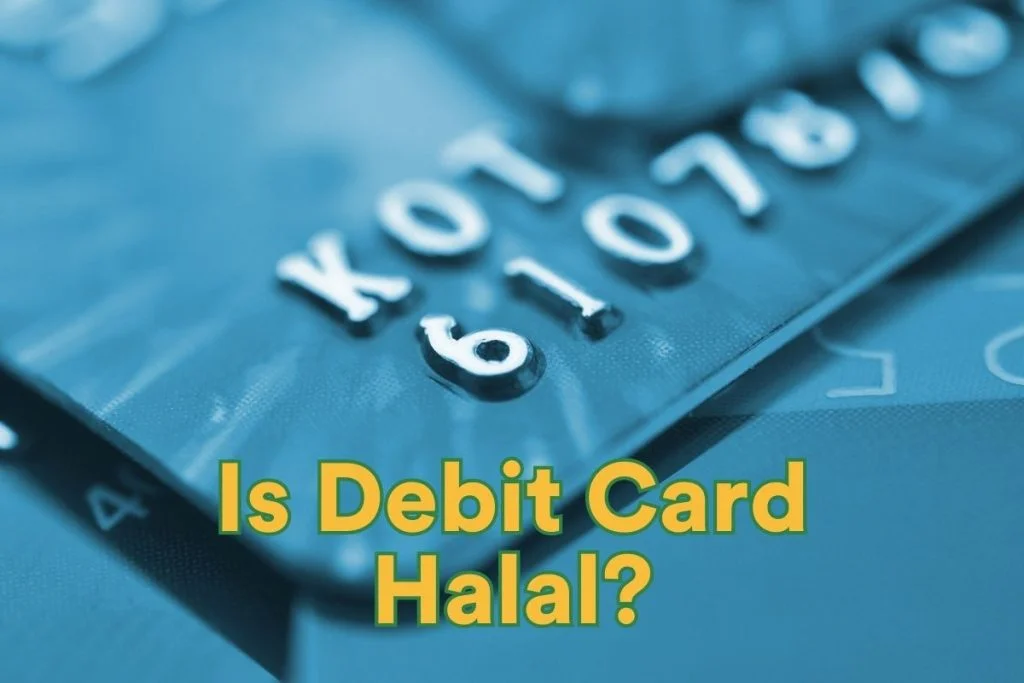In our diverse world, celebrations like Christmas, Anniversaries, and Birthdays have become widespread traditions, cherished by people of various cultures and religions. These joyous occasions mark the commemoration of the day an individual was born and have different forms of expression across the globe.
However, some religious and cultural perspectives have questioned the permissibility of celebrating birthdays. In this article, we will explore the topic from various angles, examining the religious and cultural aspects of birthday celebrations.
Key Takeaways
| 📌 Birthday celebrations have diverse cultural and religious perspectives, with some viewing them positively and others expressing reservations. 📌 Islamic viewpoints on birthday celebrations vary among scholars, with some considering them haram while others permit simple observances. |
| 📌 The permissibility of celebrating birthdays. |
Different Perspectives on Celebrating Birthdays
Religious Beliefs
Religious beliefs have a significant influence on the stance toward birthday celebrations. While some religions embrace the practice, others express reservations due to historical or theological reasons. For instance, certain Christian denominations view birthdays positively, seeing them as an opportunity to celebrate life and thank God.
On the other hand, some sects of Islam and Jehovah’s Witnesses are among those who discourage or reject birthday celebrations.
Historical Origins
The roots of celebrations can be traced back to ancient civilizations. For example, Thanksgiving originated as a harvest festival, expressing gratitude for a bountiful crop. Valentine’s Day, named after Saint Valentine, has historical ties to romantic love and affection.
The practice of marking the day of one’s birth dates back to the pharaohs of Egypt. However, the early Christians viewed such celebrations with suspicion, associating them with pagan rituals. Over time, birthday celebrations became more mainstream, taking on diverse forms across cultures.
Unique Traditions
Each culture’s approach to birthday celebrations reveals its values and customs. For instance, in China, a child’s first birthday, known as “Zhua Zhou,” involves placing various objects in front of the child and observing which one they pick up. This choice is believed to symbolize the child’s future career or talents.
In Mexico, “quinceañera” celebrates a girl’s 15th birthday, marking her transition to womanhood with a lavish ceremony. In contrast, some indigenous communities in Africa and the Americas celebrate birthdays with rituals that emphasize community bonds and spiritual connections.
These unique traditions showcase the diverse ways in which different cultures honor and mark life’s milestones. Understanding and appreciating these customs contribute to greater cultural awareness and global understanding.
Is Celebrating Birthdays Haram? Islamic Viewpoints
In Islam, opinions on birthday celebrations vary among scholars and adherents. Some Islamic scholars consider birthday celebrations to be haram (forbidden) due to their absence from the Prophet Muhammad’s traditions. They argue that the Prophet and his companions did not observe such celebrations during their lifetime.
Conversely, other scholars adopt a more moderate stance, permitting simple and non-excessive birthday observances as long as they do not involve prohibited activities. In this case, we prefer the latter opinion.
Here’s why.
In Islam, the celebration of birthdays is a matter without any specific textual guidance from Prophet Muhammad ﷺ or the consensus of scholars (ijma). There is no historical evidence indicating that the Prophet Muhammad ﷺ celebrated his own birthday, nor did his companions, the tabi’in (followers), or the early righteous scholars engage in such celebrations.
According to the principles of fiqh (Islamic jurisprudence), the default legal ruling for things is permissible unless there is clear evidence to indicate otherwise.
الأصل في الأشياء الإباحة
“The initial law of everything is mubah (permissible)”
As such, the legality of celebrating birthdays in Islam can be seen as a matter that falls under the principle of permissibility unless there is explicit evidence stating otherwise. Therefore, some scholars may consider it acceptable to celebrate birthdays as long as the celebrations do not involve any actions that are forbidden in Islam such as engaging in alcohol consumption or illicit relationships.
The act of celebrating birthdays is considered neither a recommended practice (sunnah) nor an obligatory one. However, if individuals choose to commemorate their birthdays as part of their cultural or social tradition, it is generally regarded as permissible, provided it does not involve actions that are explicitly forbidden in Islam.
Additionally, Some people may find value in using their birthdays as an opportunity for self-reflection, introspection on their age, and personal growth. This introspection can be seen as a form of muhasabah (self-accountability), which can have a positive impact on an individual’s life.
Ethical Considerations in Birthday Celebrations
Sustainable Celebrations
In an era where environmental concerns are prominent, embracing sustainable practices in birthday celebrations can reduce the ecological impact of festivities.
Avoiding Excessive Consumerism
Commercialization and excessive consumerism during birthdays can detract from the true essence of the celebration. Focusing on meaningful experiences and connections instead of material gifts can enhance the value of the occasion.
Avoiding Forbidden Things in Sharia
For individuals adhering to Islamic beliefs, ethical considerations in birthday celebrations extend to adhering to the principles of Sharia (Islamic law). This includes avoiding any practices or activities that are considered haram (forbidden) in Islam. Such practices may include excessive indulgence, extravagance, or engaging in activities that contradict Islamic teachings
Alternatives to Traditional Birthday Celebrations
Personal Growth Rituals
Instead of traditional birthday celebrations, some individuals choose to engage in personal growth rituals or goal-setting practices. These rituals provide an opportunity for self-reflection and introspection, allowing individuals to assess their accomplishments, challenges, and aspirations.
Setting intentions and goals for the upcoming year fosters a sense of purpose and direction, motivating personal growth and development. Such rituals offer a meaningful way to mark one’s birthday while focusing on self-improvement and self-awareness.
Acts of Kindness
Embracing acts of kindness on one’s birthday can transform the occasion into a meaningful opportunity to give back to society. Engaging in charitable activities like shadaqah, volunteering, or supporting a cause close to one’s heart brings a sense of fulfillment and purpose.
By spreading kindness and positivity, individuals not only celebrate their own lives but also contribute positively to the lives of others. Acts of kindness create a ripple effect, inspiring compassion and goodwill in the community, and making birthday celebrations more purposeful and impactful.
How to Plan a Meaningful Birthday Celebration

Focusing on Personal Values
To plan a meaningful birthday celebration, take time to reflect on your personal values and beliefs. Consider what truly matters to you and how you want to spend your special day.
Whether it’s spending quality time with family, giving back to the community, or embracing personal growth, aligning the festivities with your values will add depth and significance to the celebration.
Creating Lasting Memories
The essence of a memorable birthday lies in the experiences and memories shared with loved ones. Instead of focusing solely on material gifts, prioritize activities that bring joy and create lasting memories.
Organize gatherings with friends and family, engage in meaningful conversations, or embark on adventures that resonate with your interests. These cherished moments will be the heartwarming highlights of your birthday celebration.
Final Thought
In conclusion, the question of whether celebrating birthdays is haram should no longer be an issue. The importance of birthdays lies in their potential to bring joy, foster emotional well-being, and strengthen social relationships.
Finding a balance between tradition and modernity, while considering ethical and sustainable practices, can enrich the meaning of these special occasions. Ultimately, the way individuals choose to celebrate their birthdays should align with their personal values and beliefs.
Allahu A’lam (Allah knows best)
FAQs
Is celebrating birthdays haram or makrooh?
Celebrating birthdays is not haram nor makrooh as long as the celebrations do not lead to immoral or harmful behaviors, such as engaging in alcohol consumption or illicit relationships.
Is celebrating birthdays a sin?
In Islam, celebrating birthdays is considered permissible when done with the intention of expressing gratitude and using the occasion as a moment for self-introspection. However, it is crucial to ensure that these celebrations are in line with the principles of Shari’a (Islamic law) and do not involve any actions that contradict Islamic teachings.
Permissible birthday celebrations should avoid elements of immorality, such as inappropriate behavior or the mixing of unrelated men and women. Additionally, activities like binge drinking and acts of extravagance should be avoided.
Moreover, celebrations should refrain from being accompanied by music and dancing, as these activities are not in accordance with Islamic values.
Why can’t Muslims celebrate birthdays?
You can celebrate birthdays on conditions. But in certain sects of Islam, like the Wahabi or Salafi, celebrating birthdays is regarded as forbidden (haram) because there is no explicit evidence or historical examples from Prophet Muhammad ﷺ and his companions that support such practices. Moreover, it is seen as resembling the customs of non-believers.
Is it haram to go to a birthday party?
Attending a birthday party is permissible in Islam, as long as the event does not involve any disobedience to Islamic principles. As with any celebration or gathering, it is essential to ensure that the party does not include any activities or behaviors that are forbidden in Islam, such as engaging in immoral acts, consuming alcohol, or indulging in excessive extravagance.
- Is Pop Tarts Halal? What You Need to Know - February 18, 2024
- Are Graham Crackers Halal in Islam? - January 19, 2024
- Is Keebler Wheatables Halal? - January 18, 2024





